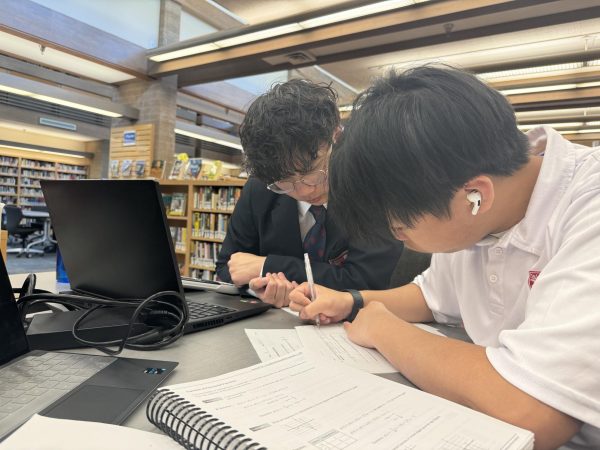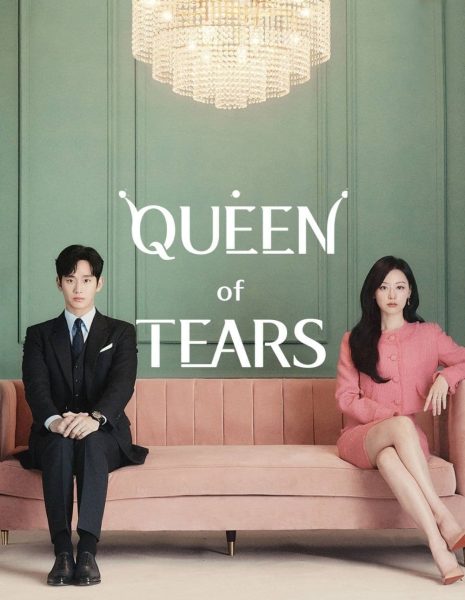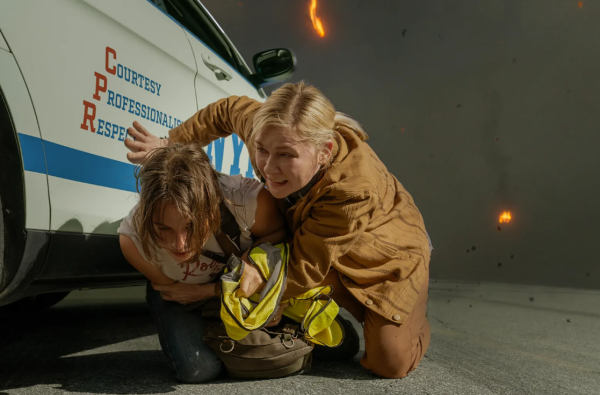Aboriginal Curriculum in B.C High Schools
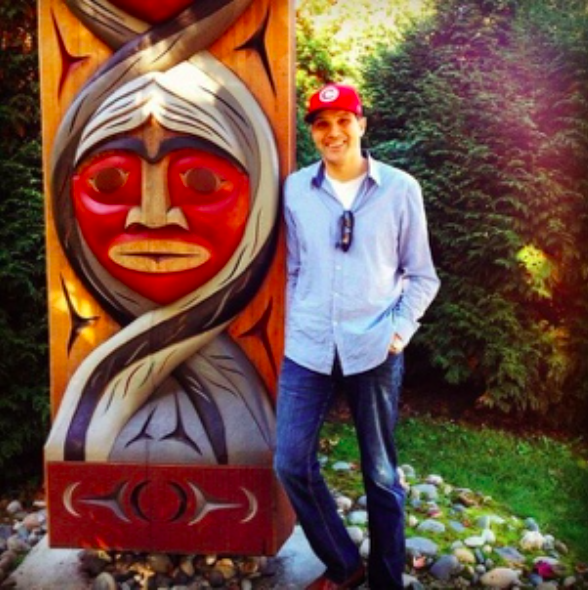
Darcy Aubin poses next to Totem Pole
A new phenomenon racing across B.C high schools is the addition of First Peoples History and Culture based curriculum. In 2015, it was announced that Aboriginal related studies will be part of the grade 8 and 9 English and Social Studies curriculum for the 2016-2017 school year. In 2018, grades 10 and up will be partaking in mandatory Aboriginal Studies, as well. Although the incorporation of Aboriginal history and culture curriculum is an important evolution in our education system, its implementation must be carefully considered, in order to fulfil its purpose.
According to Historica Canada, post-secondary enrolment in history courses is declining and a smaller percentage of students are learning about significant Canadian events. Ian Milligan, a professor at the University of Waterloo, opines that Canadians have less knowledge of history because of a new-found “trend towards ahistorical thinking.” He concludes that Canadians are caring less about our past.
Darcy Aubin of the Da’naxda’xw/Awaetlala First Nation, believes that the average Canadian should care more about the past, especially the history of First Nation’s Peoples; and the importance in understanding the complexity surrounding Aboriginal issues in present day Canada. Throughout his career, Mr. Aubin has worked for the Federal Government in the fields of social, land, environment, and economic development. Mr. Aubin has also worked closely with 15+ Indigenous groups in BC across the Lower Mainland, the Interior and Northern BC. He cites recent utterances made by Senator Lynn Beyak as a sad example of widespread ignorance. Senator Beyak issued a letter calling for First Nations people to give up their status cards in exchange for a one-time cash payment and said they could then practice their culture “On their own dime.”
According to Mr. Aubin, “Comments like that ruin people’s ears, even the highest levels need to be educated. It’s not that she’s a bad person, she just needs education.” Mr. Aubin also referenced how former Prime Minister, Stephen Harper responded to the comments made by Senator Beyak. “Stephen Harper didn’t even condemn her comments. How do you think reconciliation is going to happen when people aren’t being corrected?” Mr. Aubin’s views reflect the evolving consensus that education is not only the best, but the most powerful way to influence change. He added, “Knowledge about first nations culture and history will be required sometime in your life. The earlier you learn, the better.”
In 2013, the Truth and Reconciliation Commission(TRC) held its first meeting in Edmonton, Canada. The TRC was created to unravel the truth about residential schools across Canada. Two years later, their finding and recommendations were published. The extent of the hardship, abuse and trauma suffered by the students in these schools were shocking to most Canadians. Understanding this history helps us understand the ongoing struggles of many aboriginal communities, and sets the foundation for considering and implementing the recommendations made for the benefit of all Canadians.
Clause 62 of the TRC Calls to Action, calls for all levels of government to “Make age-appropriate curriculum on residential schools, Treaties, and Aboriginal peoples’ historical and contemporary contributions to Canada, a mandatory education requirement for Kindergarten to Grade Twelve students.” By the 2018-2019 school year all of the aforementioned topics will be included in high school curriculum. However, what is not clear is how the curriculum will be taught and how teachers will be educated to teach this new curriculum.
The first issue regarding First People’s teachings is that they are being split amongst various subjects in high schools such as Socials Studies, and English. Mr. Aubin does not believe that splitting the curriculum across different subjects is the best approach to teaching the new curriculum. He stated, “I think it would be best to have a stand-alone class regarding Aboriginal lessons, taught by someone either trained to teach on the subject or with personal experience, but having elements in different subjects helps.” No matter what subject the curriculum is taught in, Darcy believes it’s a step towards change.
In the Surrey School district, Helping Teachers have been hired to assist with the implementation of the new curriculum. A lack of funding however has restricted other districts and municipalities from doing the same. At St. George’s School in Vancouver, English teacher Ms. Jennifer Torry partook in an Online Course to additionally help with her understanding. This course however is not mandatory. “Due to time constraints, some teachers who set out to complete the course were not able to finish,” she stated. This is why Helping Teachers are useful. Teachers for the most part, haven’t been educated on Aboriginal culture and history. Mr. Aubin doesn’t believe however that Helping Teachers, are necessary. “There are resources for administrators on the B.C Government web page. Indigenous workshops are regularly held at UBC and SFU; if schools made these workshops mandatory for their teachers then that would-be progression. Also, Pro D-Days should always incorporate some form of Aboriginal teaching.” Mr. Aubin was adamant that the priority should be on educating the teachers and not relying on funding for Helping Teachers.
The third issue surrounding the new curriculum, is whether teachers who are just learning the curriculum for the first time with their class be allowed to teach the curriculum? When asked for his opinion on the previously mentioned question, Mr. Aubin responded by saying, “Absolutely not. It’s like someone who doesn’t speak Spanish, trying to teach Spanish.” Although his analogy isn’t exactly foolproof, he does raise an interesting point. Mr. Aubin is a true believer that education is the best way of enacting change; and all levels of people should be educated.
Reconciliation is defined as the restoration of friendly relations. Darcy Aubin sees reconciliation as an “Understanding of what happened and making things right.” This goal will be difficult to achieve due to the lengthy history of abuse and discrimination suffered by Aboriginals in Canada. However, it seems that steps to accelerate the process are underway. The establishment of the TRC by the federal government is one example of how reconciliation could be advanced. The implementation of Aboriginal related studies will help this advancement.
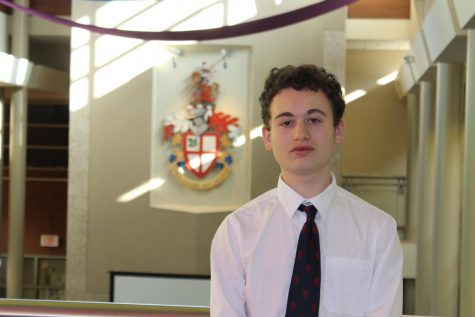
Liam Solomon is a lifer at St. George’s. He has thoroughly enjoyed his first ten years at St. George’s and looks forward to diving into his 11th year....




